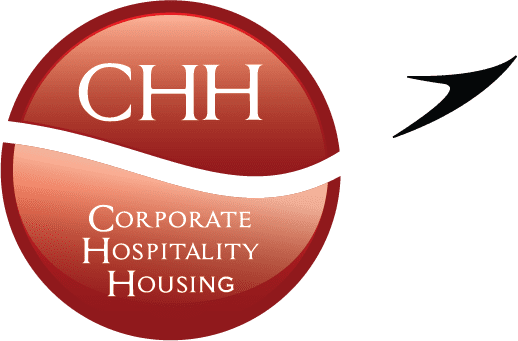Understanding Duty of Care for Travel Management
In today’s fast-paced energy sector, ensuring the safety and well-being of your traveling workforce is paramount. Understanding and implementing a robust duty-of-care travel strategy is essential for companies operating in the oil, gas, and energy industries. Corporate Hospitality Services (CHS) can help you navigate these responsibilities with ease and efficiency.
Understanding Duty of Care in the Energy Industry
Duty of care refers to the legal and ethical obligations that employers have to protect the health, safety, and well-being of their employees while they are traveling for work. This responsibility extends beyond mere compliance with regulations; it encompasses proactive measures to ensure employees are safe and supported throughout their journeys.
In terms of business travel, especially within the high-stakes oil, gas, and energy sectors, duty of care takes on added significance. These industries often involve working in remote locations, dealing with hazardous materials, and operating under tight deadlines, all of which can increase the risks associated with travel. Employers must understand these unique challenges to provide secure and comfortable lodging solutions so that their workforce remains productive and protected.
Key Components of Effective Travel Management Duty of Care
Implementing an effective duty-of-care travel management strategy involves several critical components that work together to safeguard your employees and streamline your travel operations.
Risk Assessment and Mitigation
Identifying potential travel-related risks is the first step in any duty of care strategy. This involves evaluating factors such as the safety of travel destinations, the reliability of lodging options, and the potential for emergencies. Developing comprehensive risk management strategies ensures that your company is prepared to handle unforeseen situations effectively. Proactive planning is crucial, and partnering with an experienced corporate lodging provider can simplify this process. At CHS, our lodging solutions are tailored to accommodate your specific needs.
Real-Time Communication and Tracking
Leveraging advanced technologies for tracking employee locations enhances your ability to respond swiftly in case of emergencies. Implementing real-time communication platforms allows instant information sharing, so employees receive timely updates and support whenever needed. Emergency communication protocols are essential for maintaining continuous contact and providing immediate assistance during critical situations.
Benefits of Robust Duty of Care Practices
Establishing robust duty-of-care practices offers numerous advantages for both employees and organizations, fostering a safer and more efficient travel environment.
For Employees
Employees benefit directly from enhanced personal safety measures and increased peace of mind, knowing that their well-being is a top priority. In the event of travel emergencies, having reliable support systems in place ensures employees receive the assistance they need promptly, contributing to their overall job satisfaction and productivity.
For Organizations
Organizations that prioritize duty of care can reduce their liability and improve employee retention by demonstrating a genuine commitment to their workforce’s safety. Additionally, a strong duty of care framework enhances your corporate reputation, making your company a preferred employer in the industry. Protect your workforce and minimize travel risks by partnering with CHS. Contact us today to learn more about our comprehensive solutions.
Implementing a Comprehensive Duty of Care Strategy
Developing a comprehensive duty of care strategy involves integrating various elements that work cohesively to protect your employees and streamline your travel management processes.
Technology Solutions
Utilizing GPS tracking systems and mobile communication platforms enables real-time monitoring and efficient communication with your traveling workforce. These technologies provide valuable data that can be used to enhance safety measures and improve overall travel management.
Training and Preparedness
Employee training programs are key to ensuring your workforce is well-prepared to handle potential travel risks. Establishing clear emergency response protocols and conducting regular risk assessment updates helps maintain a high level of preparedness and responsiveness. Continuous training and preparedness efforts empower employees to act confidently and effectively in emergency situations.
FAQs About Duty of Care for Travel Management
What is duty of care in business travel?
Duty of care in business travel refers to the legal and ethical obligations employers have to ensure their employees’ safety, health, and well-being while traveling for work.
How can technology improve duty of care?
Technology can enhance duty of care by providing real-time tracking, efficient communication channels, and instant access to emergency services, thereby improving the overall safety and responsiveness of travel management.
What industries benefit most from duty of care practices?
Industries that involve frequent and often remote business travel, such as oil & gas/energy, construction, utilities, and healthcare benefit significantly from strong duty of care practices to ensure the safety and well-being of their traveling workforce.
Elevate Your Corporate Travel with CHS
Implementing a comprehensive duty-of-care travel strategy is essential for safeguarding your employees and optimizing your travel management processes. Corporate Hospitality Services (CHS) offers tailored lodging solutions that meet the unique demands of the energy industry, ensuring your workforce is comfortable, secure, and supported. Partner with CHS to simplify your corporate housing needs and focus on what you do best—driving your business forward.
For more information on how CHS can enhance your duty of care practices and streamline your corporate travel management, contact us today.


